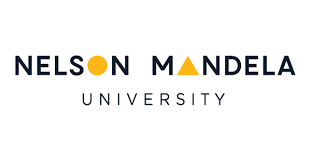Nelson Mandela University doctoral candidate win French research prizes for their conservation projects
PhD students Alice Bernard and Laura Lacomme, based on Mandela University’s George Campus, respectively, received the first and third young researcher prizes, from the Jane Goodall Institute (JGI) in France, for their work aligning with renowned primatologist Dr Jane Goodall’s philosophy.
They form part of the French REHABS international research laboratory, a collaborative partnership between Nelson Mandela University, the University of Claude Bernard Lyon 1 in France, and the French national research centre (CNRS).
As ecologist, Alice has been recognised for her exceptional research efforts in biodiversity conservation in a world heavily influenced by human activities. Her research focuses on the challenges that large mammal species face to coexist with human-altered landscapes, and practices and attitudes to promote harmonious relationships between humans and wildlife.
Driven by the belief that meaningful conservation can only be achieved through community engagement, the Jane Goodall Institute supports Alice’s vital research.
From setting up camera traps to collecting vital environmental data, her interdisciplinary and collaborative approach is essential to gain the support of private landowners and national park agents.
Alice’s online questionnaire reached more than 200 residents in the area and she conducted multiple oral presentations of her research project and findings to civil society, to enhance dialogue and collaboration among all conservation stakeholders.
“It is essential to co-construct coexistence and conservation solutions with the people who live with the species that we wish to protect, with which they share the same living territory,” Alice says.
Africa, with its social, economic, and biodiversity challenges, holds a critical position in the global conservation efforts. With projections indicating that 35% of the world’s youth will be African by 2050, it is crucial to prioritise the continent’s role in biodiversity preservation.
Wildlife conservationist, Laura focuses on the welfare and quality of life of African elephants in South Africa. Since 2018, Laura has been actively involved in wildlife conservation initiatives across Africa and Southeast Asia. With a background in agronomy, and experience in business and NGO consulting, she has merged her passion for conservation biology and socio-ecology.
At the core of Laura’s research lies the objective to integrate indicators of elephant welfare into conservation area management decisions. South Africa’s diverse natural reserves and national parks provide the perfect setting for her to delve into the complexities of elephant behaviour and health.
Additionally, she embraces a socio-ecological perspective, acknowledging the significance of conservation methods in a rapidly changing world affected by climate change and social disruptions.
One of the key challenges Laura faced, was understanding the management logic of protected areas, while also gathering data in a non-invasive manner. Her research involved the collection of data on various aspects of elephant well-being, including behaviour, body condition, internal parasitism, and glucocorticoid levels, a hormonal indicator of stress.
Laura also devised a practical method for quantifying these elephant stress hormone levels during fieldwork. This approach provides an effective tool for conservation managers to monitor the welfare of elephants in their care, prompting more ethical considerations in their management strategies.
She is also passionate about sharing her findings with a broader audience, and through conferences and promoting multidisciplinary scientific research, she aims to foster a modern vision of wild species conservation.

